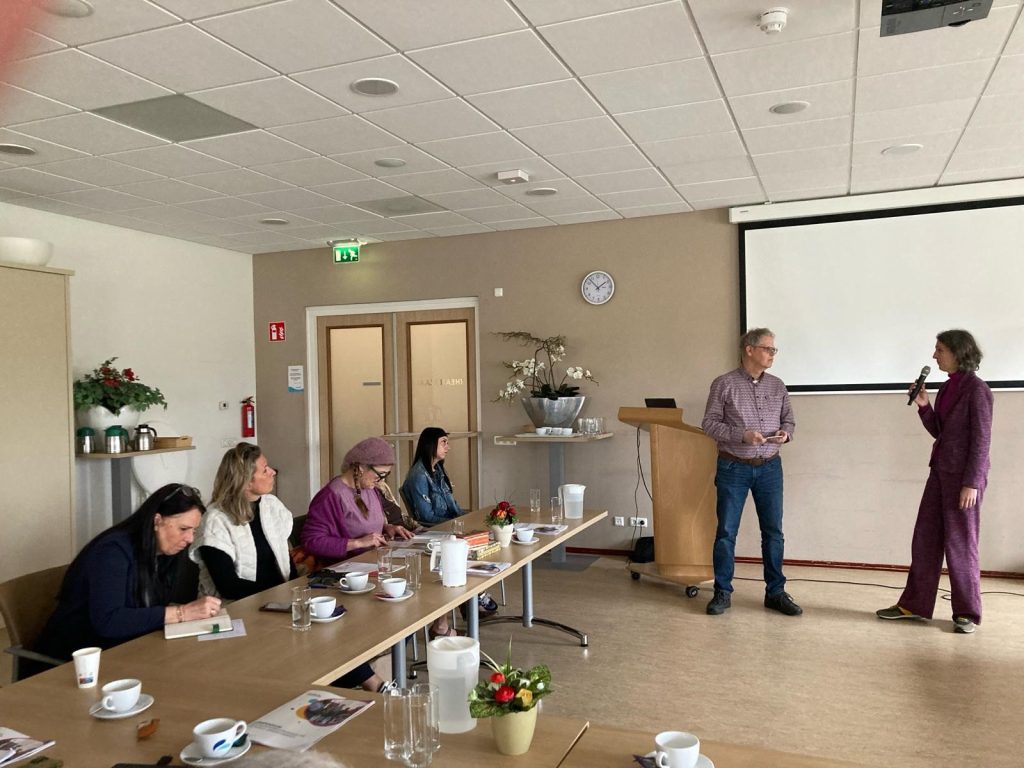On 21 March 2024, AFEdemy organised a meeting together with the Golden Days foundation in Utrecht on how to use cultural activities to prevent feelings of loneliness and isolation. For AFEdemy, this was a great opportunity to present the project results of the Erasmus+ project Culture on Prescription.
Willeke van Staalduinen, the CEO of AFEdemy, presented the national report that was developed on her research for the project. The conclusion of the research was that in several Dutch projects already successfully was experimented with arts and culture on prescription. The research revealed that there was a need for more clarity on how professional artists as project facilitators could be prepared for their role and task. This aspect was investigated in the project and one of the recommendations is to organise a preparatory workshop for professional artists that includes the use of role-plays. AFEdemy presented this and the other results of the project by showing the project results that are presented on the website.
Invited for the occasion was Ingrid Smit, LCKA’s expert who was interviewed by Bart Borsje of AFEdemy. Ingrid Smit indicated that the interest in art and culture on prescription is increasing significantly in the Netherlands. However, structural funding is still not available. Regarding the outcomes of arts and culture as cure, care and prevention, it would be expected to become a right under the Social Support Act or the Long-Term Care Act. There is still work to be done to make this happen. The representative of the Long Live Art Fund present explained that artists can apply for funding for this kind of initiative. The fund was set up especially for this purpose: art as a means to improve the well-being of the elderly.
The reactions of those present showed that it is particularly feared that the Dutch cultural sector will be severely cut back under the new cabinet. As a result, projects like Culture on Recipe are not feasible despite practical evidence that such projects are highly appreciated and help prevent loneliness. The Amsterdam municipality shared their own findings with Culture on Recipe. They use the “Social Prescribing” procedure for this. A patient receives a prescription from a healthcare professional and links the patient to a welfare coach. This coach talks to the patient to determine needs. If the coach or the patient thinks arts and culture is the best approach, the coach refers the patient to the arts mediator. There are 90 artists in Amsterdam available to be included in the offer. This project runs until 2026 and works very well.
The Dutch Foundation Gouden Dagen also presented its findings from their Community Care Worker project. Both Erasmus+ projects fit well together despite being different in their design. Attendees showed that they greatly appreciated the initiatives. The afternoon ended with a short art workshop for the participants so that they could also experience how drawing to music can boost your self-esteem.

